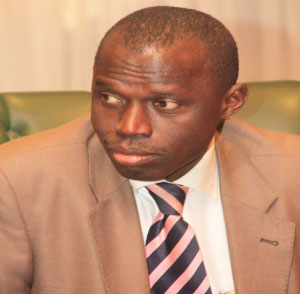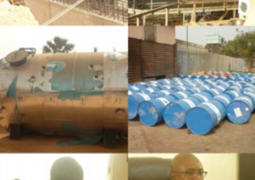
The
Minister of Finance and Economic Affairs, Hon. Abdou Kolley, yesterday laid the
estimates of revenue, recurrent and development expenditures for the fiscal
year 2017 before lawmakers for scrutiny.
Minister
Kolley told lawmakers that the legal requirements for the presentation of the
Government budget to the National Assembly are detailed out in the 1997
Constitution, and the Public Finance Act of 2014.
He said that section 152 (1) of the 1997
Constitution of the Republic of The
Gambia requires the President to instruct the Minister of Finance to prepare
and submit it to the National Assembly, at least 30 days before the end of each
financial year.
“These
estimates shall include any estimates, which under the constitution, are to be
submitted directly to the President by the Chief Justice or any other authority
for presentation by the President to the National Assembly.”
Finance
Minister further told deputies that section 152 (1A) of the constitution
requires the National Assembly within a maximum period of 14 days, after
receiving the estimates of revenues, recurrent and development expenditures, to
consider and approve the estimates.
He
said in so doing, the public Finance Act provides under Section 27 for the
National Assembly to appoint, temporarily or permanently, a small core of
technical staff to assist in gathering information, making research and
analysis on issues pertinent to its deliberations and resolutions on the
budgets submitted to it by the Minister.
He
added that during the period 2011-2015, average real GDP growth moderated to
2.4 per cent, well below the 5.6 per cent average growth registered over the
period 2007-2010.
This
decline in the average real GDP growth was the result of shocks in the main
growth driving sectors of the economy - agriculture and tourism - since 2011.
Agricultural
sector contribution has consistently declined, from 24 per cent to 21 per cent
in 2015, he said, stating that the services sector, on the contrary, has seen
its contribution increased from 62 per cent in 2011 to 64 per cent in 2015.
He
said the contribution of the industry (15 per cent) remain unchanged over the
review period and this signals inadequate transformation and diversification of
the economy, hence increasing transformation and the economy to external shocks
in two major sectors of the economy.
“As
of end October 2016, the NDB has reached approximately D2.2 billion, with most
of the increment being registered in the third and fourth quarters, and the key
contributing factors include: the settlement of MDA arrears, extra-budgetary
spending, mounting tax arrears from public enterprises, and most critically,
government bailing out State Owned Enterprises.”
The
Ministry of Finance and Economy Affairs will report back to the National
Assembly on 14 December 2016, for the consideration and adoption of the budget
for the fiscal year 2017.



